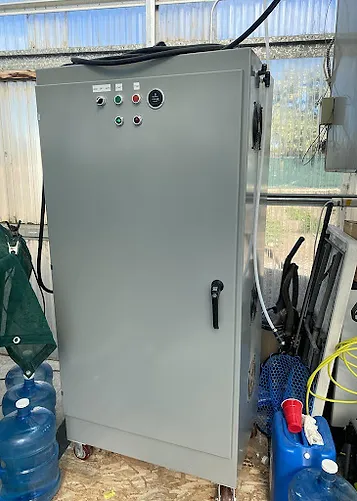Agriculture
H2Plus in Agriculture Summary
The researchers at H2Plus have Developed a Proprietary Agricultural Water Technology that when used provides enhanced germination, tap root growth, fibrous root development, increased turgor pressure, shorter growth cycles and higher yield per acre with competitive water and nutrient usage. Proprietary technology alters the physical properties of the water so that it behaves more like that of the intercellular water found in plants. When the proprietary water is altered to a “structure” that is similar to that found in living plant cells, said plants germinate more readily, grow faster, stay healthier and get to market faster with a greater yield per acre.
More specifically, the water structure is altered to that of intracellular water, so the cell does not have to expend the energy to convert it to the observed structure of the water in the cell. This alteration of the H2Plus water has a profound effect on the ability of plant cells to solubilize and absorb organics, nutrients & micronutrients.
Opportunity
As a water technology company focused on improving agricultural productivity and water conservation, our solutions are designed to address several critical issues plaguing the industry today. Below are four current problems in crop production that H2Plus technology is equipped to solve:
Vertical Farming and Indoor Agriculture: Among the fastest-growing sectors in agriculture. These methods use controlled environments to grow crops, and can use hydroponic, aeroponic, or aquaponic systems. Advantages of this approach include year-round production, efficient water use, reduced need for pesticides, and the potential for urban farming, reducing the need for transportation. Studies ongoing in Grand Junction, CO in aquaponics and hydroponics.
Water Scarcity: This is an increasingly pressing issue worldwide, with climate change exacerbating water shortages in many agricultural regions. Our technology maximizes water-use efficiency, allowing crops to be grown with significantly less water than traditional methods. This could greatly alleviate pressures on water-stressed regions and allow for more sustainable farming practices.
Soil Health Degradation: Over-irrigation and inefficient water use can lead to problems like soil salinization and erosion, which can negatively affect crop yield and long-term soil health. By using our technology to optimally regulate irrigation, we can help prevent these issues and promote healthier soils.
Climate Change Adaptation: Changes in temperature and rainfall patterns due to climate change pose significant challenges to crop production. Our technology, by optimizing water use and improving resilience of crops to water stress, can help farmers adapt to these changing conditions and maintain productivity even under less favorable climate scenarios. Food scarcity is a growing international concern with the world’s current population of 7B people expected to reach 9B by 2050, while the food required to feed the world’s population might be required to grow 60-100% to meet this growing demand. Improving on germination times by 30-40% has the ability to improve overall production for the farming sector, reducing risk to exposure to volatile climate fluctuations. Studies ongoing in Grand Junction, CO.
By addressing these problems, our technology not only increases agricultural productivity and extends produce shelf life, but also contributes to the overall sustainability of the farming sector.

H2Plus system installed in greenhouse, scaled to meet GPD demand

Sump pump introduces H2Plus gas to closed water system. Air lines direct 30% of gas directly into beds

H2Plus supporting 3,000 sq ft aquaculture grow
